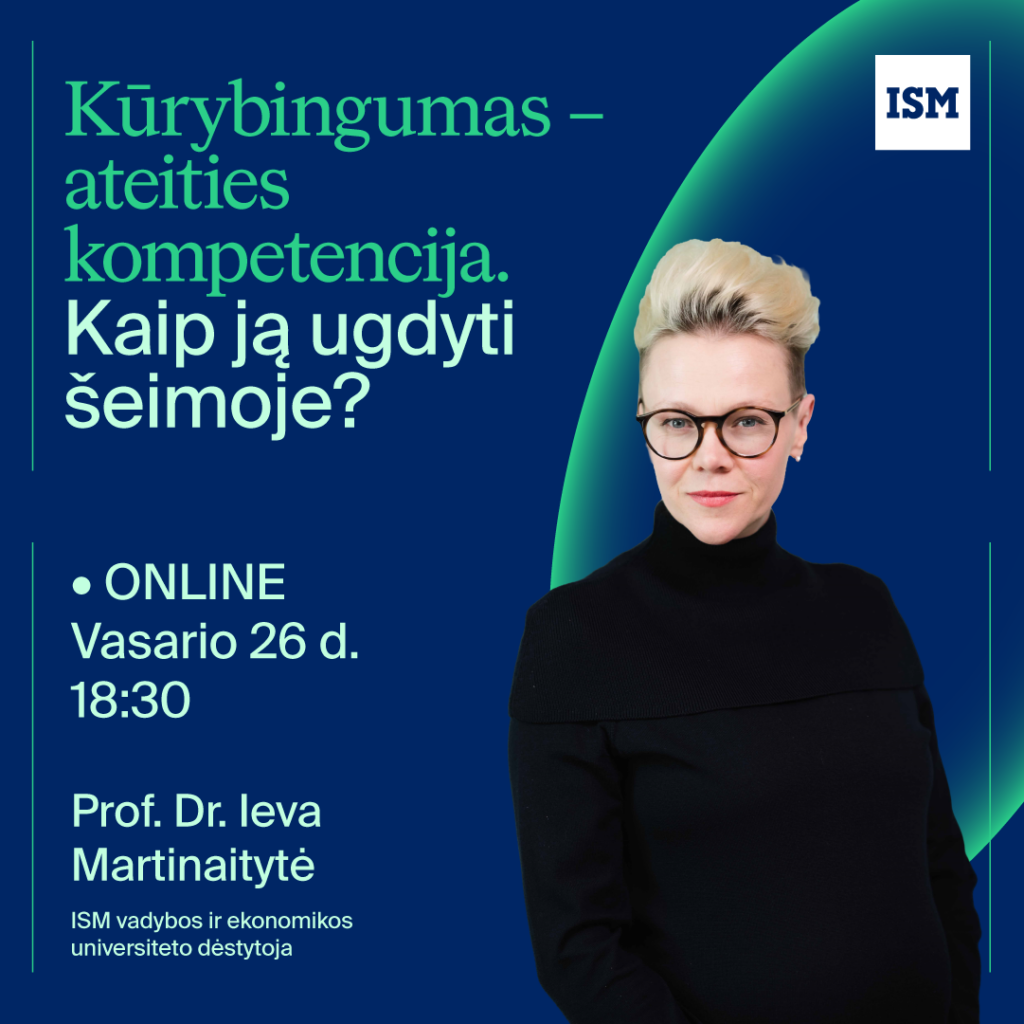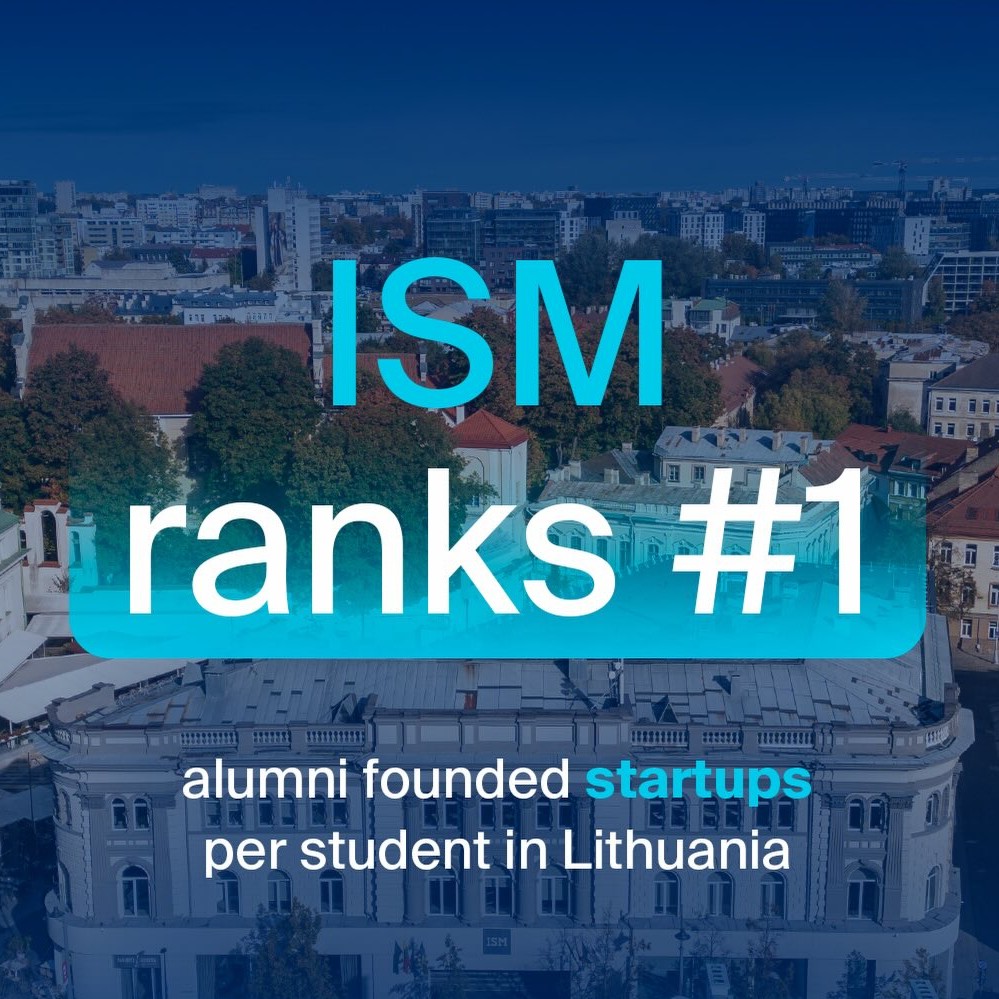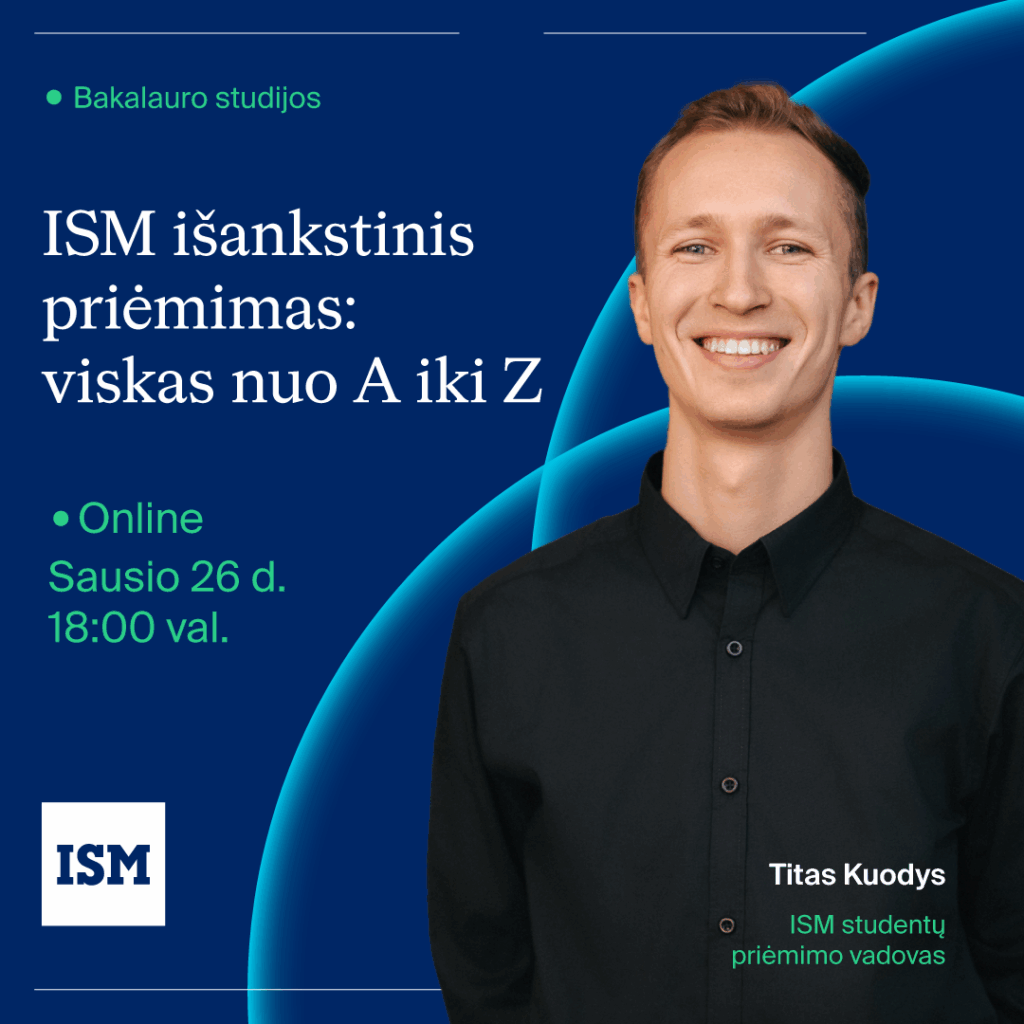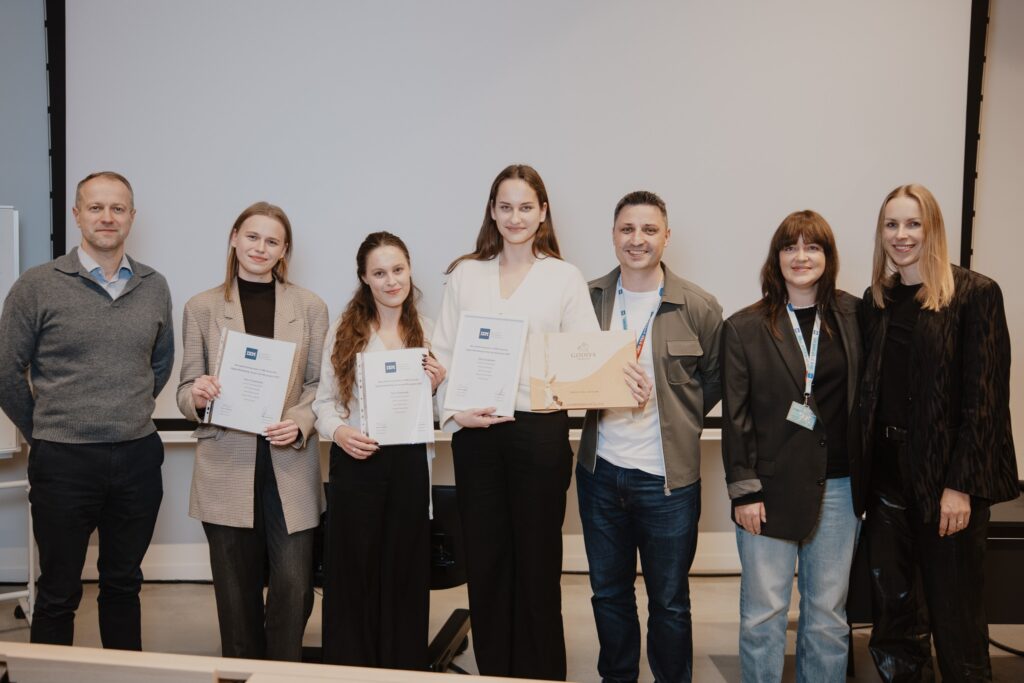Tarptautinis verslas ir komunikacija (bakalauro studijos)
Studijų metu verslo pasaulį pamatysi iš visų pusių – komunikacijos, rinkodaros, socialinės atsakomybės, tarptautinės ekonomikos. Programa paruoš tave karjerai tarptautinėse įmonėse, galėsi dirbti rinkodaros, komunikacijos, viešųjų ryšių, pardavimo, personalo vadybos srityse.

Susipažink su studijų programa iš arčiau








Programos struktūra
Ką išmoksiu?
Ką išmoksiu?
Ką išmoksiu?
Ką išmoksiu?
Ką išmoksiu?
Ką išmoksiu?
Mokomieji dalykai
Ką išmoksiu?
Kuo galėsiu būti?
Pardavimų vadovu
Verslo plėtros vadovu
Komunikacijos specialistu
Turinio kūrėju
Rinkodaros vadovu
Žmogiškųjų išteklių vadovu

Programos išskirtinumai
Galimybės užsienyje

Dvigubas diplomas su BI Norwegian Business School
Studijos Norvegijoje, viename iš 1 procento pasaulio universitetų, turinčių “Triple Crown” akreditaciją (AMBA, EQUIS, AACSB)Kaip tai vyksta? Ketvirtame studijų semestre vyksta atranka. Studentai, praėję atranką vienerius metus mokysis BI Norwegian Business School.
Kiek tai kainuoja? Studijų BI Norwegian Business School metu yra mokamas šios mokymo įstaigos studijų mokestis. Pritaikoma dešimties procentų nuolaida. ISM universitetui mokėti už studijas tą semestrą nereikia.
Kur aš gyvensiu studijuodamas Norvegijoje? BI Norwegian Business School siūlo įvairaus tipo apgyvendinimą studentų rezidencijose.
Kokią naudą aš gausiu? Beveik per tą patį laiką gausi dviejų aukštųjų mokyklų diplomus. Formuosi tarptautinį savo pažinčių ratą. Mokydamasis užsienio šalyje praplėsi savo akiratį ir gebėsi laisvai orientuotis bei dirbti multikultūrinėje aplinkoje.

Dvigubas diplomas su KEDGE Business School
Studijos Prancūzijoje, viename iš 1 procento pasaulio universitetų, turinčių “Triple Crown” akreditaciją (AMBA, EQUIS, AACSB)Kaip tai vyksta? Atranta į KEDGE Business School vyksta trečiame semestre. Praėję atranką studentai vyksta į KEDGE Business School Prancūzijoje
Kiek tai kainuoja? Papildomai tai nieko nekainuoja.
Kiek laiko trunka? 3 semestrus
Ar teikiama apgyvendinimo paslauga? KEDGE Business School padeda susirasti apgyvendinimą.
Kokią naudą aš gausiu? Beveik per tą patį laiką gausi dviejų aukštųjų mokyklų diplomus. Formuosi tarptautinį savo pažinčių ratą. Mokydamasis užsienio šalyje praplėsi savo akiratį ir gebėsi laisvai orientuotis bei dirbti multikultūrinėje aplinkoje.

Dvigubas diplomas su BBA INSEEC-ECE (Prancūzija)
Studijos Prancūzijoje, viename iš 1 procento pasaulio universitetų, turinčių “Triple Crown” akreditaciją (AMBA, EQUIS, AACSB)Kaip tai vyksta? Atranka į BBA INSEEC-ECE vyksta ketvirtame semestre. Atranką perėję studentai vieniems metams vyksta į BBA INSEEC-ECE.
Kiek tai kainuoja? Papildomai tai nieko nekainuoja.
Kiek laiko trunka? Vienus metus.
Ar teikiama apgyvendinimo paslauga? BBA INSEEC-ECE padeda susirasti gyvenamąją vietą.
Kokią naudą aš gausiu? Beveik per tą patį laiką gausi dviejų aukštųjų mokyklų diplomus. Formuosi tarptautinį pažinčių ratą. Mokydamasis užsienio šalyje praplėsi savo akiratį ir gebėsi laisvai orientuotis bei dirbti daugiakultūrėje aplinkoje.
Naujienos ir renginiai
Studijos ISM mane išmokė greitai pasistatyti pamatą, kad galėčiau susigaudyti, kur esu iš to, ką jau žinau ir kaip greičiau mokytis.

Studijos ISM - prieinamos kiekvienam
Kainos, finansavimas ir priėmimas
Investicijos į studijas atsiperka
Finansavimo galimybės
D.U.K.
Kokiais etapais vyksta priėmimas į ISM universitetą?
Kuo ypatingas išankstinis priėmimas ir kodėl turėčiau stoti per jį?
Kokius egzaminus turiu išlaikyti, norint įstoti į ISM?
Kas yra Valstybės studijų stipendija (vnf/st)? Ką turiu daryti, jog ją gaučiau?
Mokyklą baigiau užsienyje. Ar galiu stoti į ISM?
Ar galiu įstoti į ISM, jei jau studijavau kitame universitete?
Kokios yra ISM universiteto praktikos galimybės?
Kokia kalba vyks paskaitos ISM universitete?
Ar galima stoti į išlyginamąsias studijas po kolegijos?
Kitos bakalauro studijų programos
Svarstai apie bakalauro studijas?





















